The Connection Between Withdrawal Management and Mental Health

Introduction to Withdrawal and Mental Health Interconnection
Understanding the complex relationship between withdrawal management and mental health is essential for supporting individuals on their recovery journey from substance use disorders. As both physical and psychological health are closely impacted, this relationship demands a holistic approach for effective withdrawal management. This article delves into the interplay between mental health disorders and substance withdrawal, highlighting the importance of integrated care during detoxification and recovery.
Mental and Physiological Effects of Withdrawal
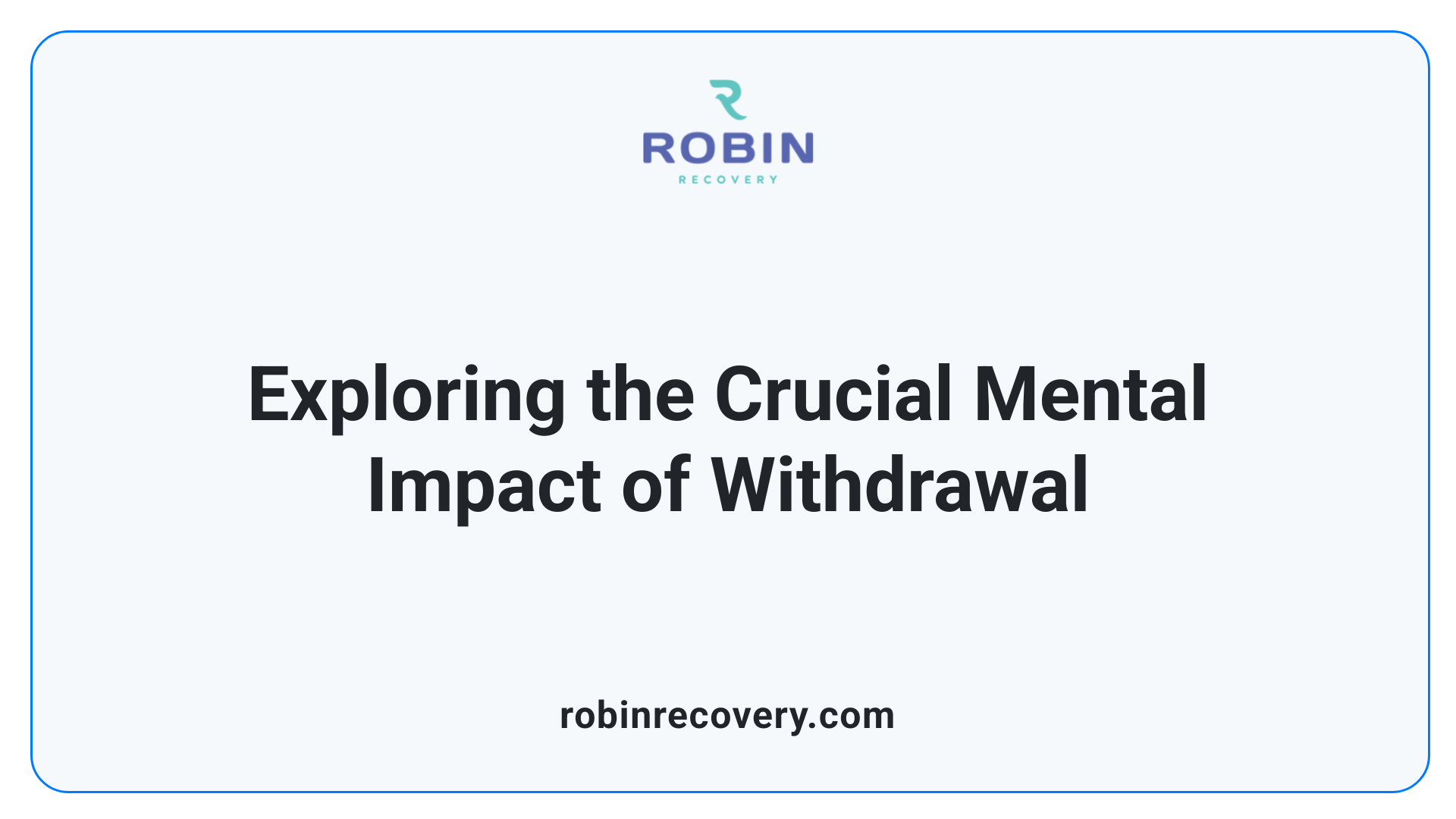
What are the mental effects of withdrawal?
Withdrawal from substances triggers a multitude of mental effects. Common symptoms include:
- Depression: Heightened feelings of sadness and hopelessness can occur as the brain's chemistry struggles to rebalance.
- Anxiety: Individuals may experience heightened levels of anxiety as the body adjusts to the absence of the substance.
- Irritability: A short temper and mood swings are typical reaction signs during withdrawal.
- Reduced motivation: Individuals may feel apathetic or have difficulty finding pleasure in activities they once enjoyed.
- Severe complications: In extreme cases, withdrawal can provoke hallucinations and delusions, underscoring the critical need for medical supervision.
It's crucial to note that these psychological symptoms are often inextricably linked to physical withdrawal symptoms. This duality emphasizes the necessity of comprehensive treatment plans addressing both aspects for effective recovery.
What happens to the brain during withdrawal?
The brain undergoes significant changes during withdrawal, especially concerning its reward pathways and stress response systems. Key effects include:
- Reward system dysregulation: The brain’s reward circuits become less responsive, leading to a diminished ability to experience pleasure, also known as anhedonia.
- Increased stress neurotransmitter activity: Chemicals like corticotropin-releasing factor (CRF) and dynorphin surge in the extended amygdala, resulting in heightened stress and negative emotions.
- Persistent cravings: Adaptations from previous substance use can alter brain structure, initializing cravings that may persist long after the withdrawal phase ends.
This neurobiological shifting illustrates addiction as a chronic brain disease necessitating long-term care and consideration in recovery plans. Recognizing these changes is critical to understanding the withdrawal experience and its management.
Integrated Care for Co-occurring Disorders
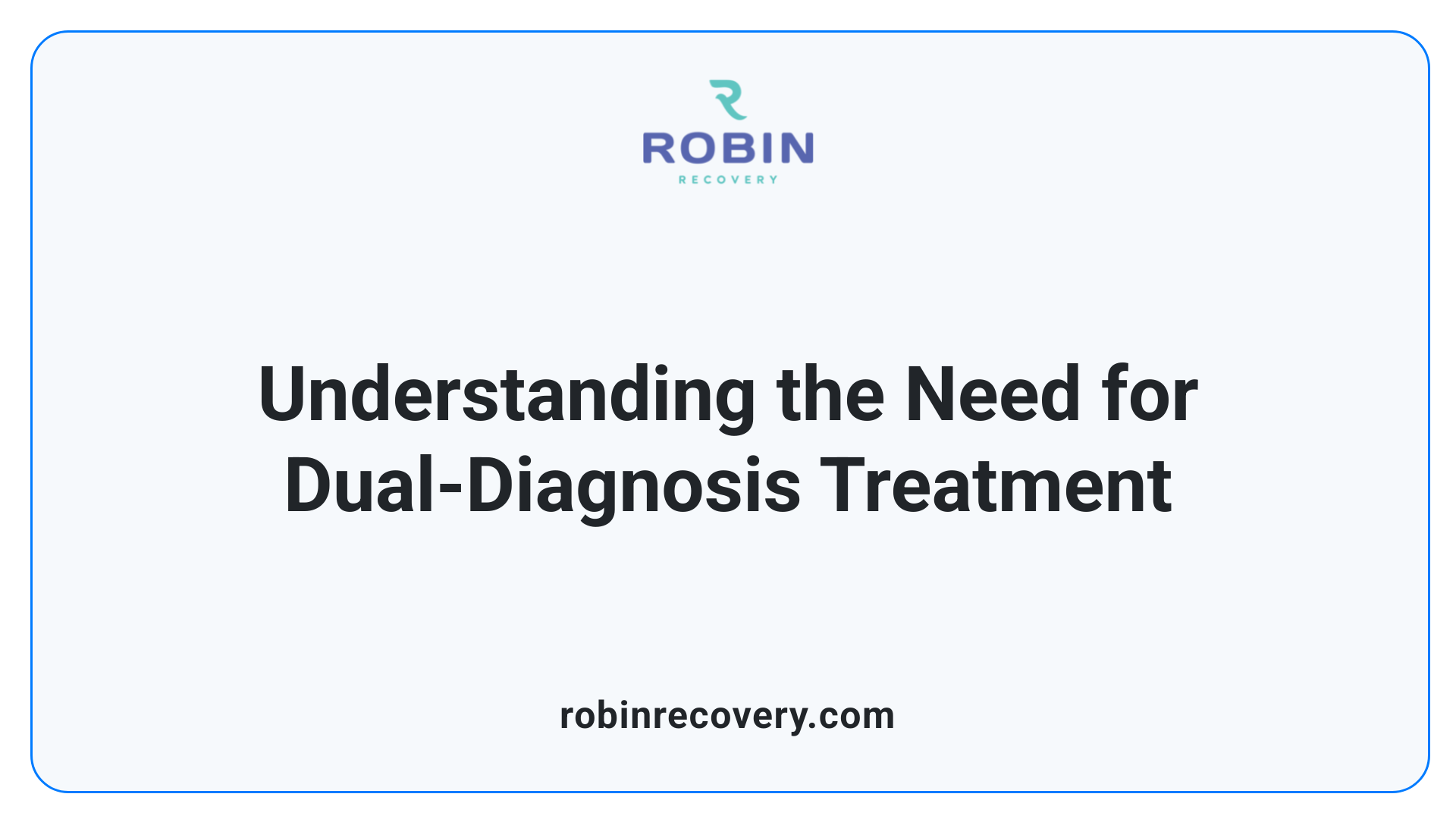
Need for dual-diagnosis treatment
Co-occurring disorders, where substance use disorders align with mental health conditions like anxiety or depression, require specialized approaches during withdrawal management. About 9.2 million Americans suffer from such conditions, making effective dual-diagnosis treatment essential. This integrated care model is vital because substance use can exacerbate mental health issues, emphasizing the need to address both simultaneously for a successful recovery journey.
Role of professionals in managing withdrawal and mental health
Trained medical professionals play an essential role in supervising withdrawal management. They provide crucial support to achieve safe detoxification while monitoring patients for psychological distress. Continuous oversight is particularly important for individuals with a dual diagnosis. Inpatient facilities often house psychiatric units, ensuring that care teams can address both substance withdrawal and mental health symptoms within a comprehensive framework.
Significance of tailored treatment in detoxification
Personalized treatment plans are a cornerstone of effective detoxification, addressing each patient's unique physical and emotional health needs. By integrating therapies like cognitive behavioral therapy and motivational interviewing, patients can develop coping strategies that support their long-term recovery goals. Tailored plans not only facilitate better withdrawal management but also foster a deeper understanding of the root causes of addiction and mental health issues, increasing the likelihood of sustained recovery.
Effective Withdrawal Coping Strategies and Support
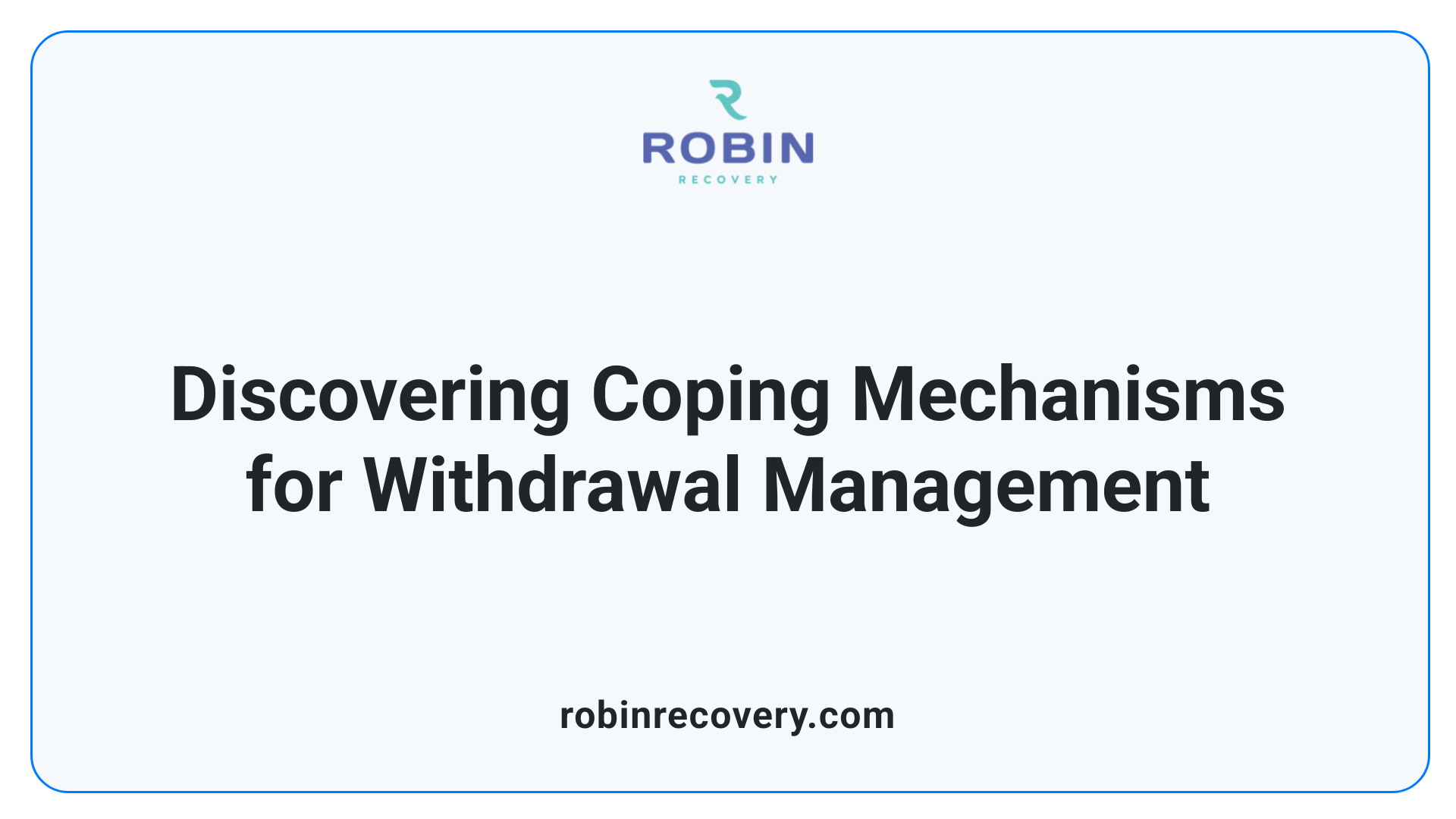
What are some coping mechanisms to manage withdrawal?
Coping mechanisms play a vital role in the process of overcoming addiction, especially during withdrawal. Healthy strategies can significantly enhance mental, emotional, and physical well-being during this challenging time. Here are some effective coping strategies individuals can employ:
- Exercise: Engaging in physical activity releases endorphins, which can improve mood and reduce anxiety.
- Mindfulness & Meditation: Practicing mindfulness or meditation can help individuals stay grounded and focused, reducing stress levels.
- Journaling: Writing about feelings and experiences can facilitate the processing of emotions and promote self-reflection.
- Therapeutic Support: Seeking therapy or joining support groups allows individuals to share their experiences, feel understood, and gain valuable insights from others who are on similar journeys.
Conversely, it is crucial to avoid unhealthy coping mechanisms. Symptoms of denial, avoidance, and rationalization can inhibit progress and increase the risk of relapse, detracting from the effectiveness of recovery programs.
Role of support systems and therapy in managing withdrawal symptoms
Accessing a robust support system is equally important in the withdrawal management process. Relationships with trained medical professionals, counselors, and family members can provide a safety net, especially during the initial stages of detox. A compassionate and understanding environment significantly contributes to positive mental health outcomes, helping to manage symptoms and alleviating feelings of isolation often felt during withdrawal.
Support systems paired with therapeutic interventions—like individual and group therapy—help in addressing the psychological aspects of withdrawal. These therapies focus on developing coping skills, managing cravings, and enhancing motivation for long-term recovery.
The holistic combination of healthy coping strategies and strong support from therapy and loved ones fosters resilience, increases the chance of successful withdrawal management, and ultimately supports sustained recovery.
Medically Supervised Detoxification: A Crucial Step
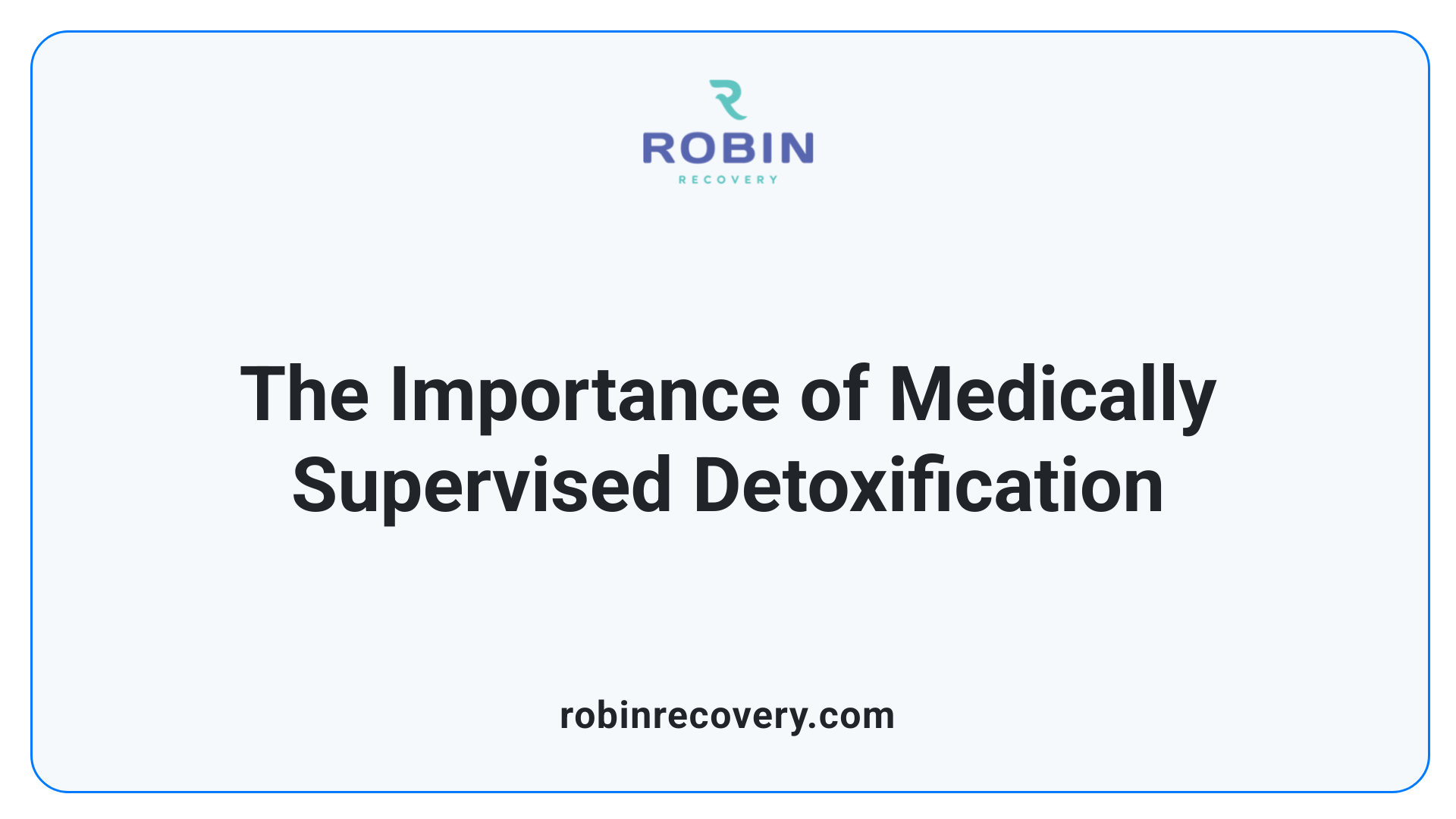
Benefits of medically supervised withdrawal management
Medically supervised withdrawal management plays a vital role in the recovery journey. It offers a safe and structured environment for individuals struggling with substance use. Key benefits include:
- Continuous Monitoring: Patients receive 24/7 care to address physical and psychological symptoms promptly.
- Personalized Treatment Plans: Tailored approaches help address individual needs, increasing engagement and comfort.
- Medication-Assisted Treatment: Medications can alleviate withdrawal symptoms and stabilize mental health, reducing risks of complications.
Improved outcomes with professional supervision in detox
Research shows that supervised detox significantly enhances recovery success rates. Continuous oversight by trained medical professionals means:
- Quick Response to Complications: Immediate intervention can prevent severe withdrawal symptoms from escalating.
- Enhanced Emotional Support: Integrated mental health care keeps psychological issues in check, fostering a supportive healing environment.
- Better Transition to Further Care: Effective detoxification facilitates a smoother entry into ongoing treatment and recovery programs.
Differential Impact: Substance vs. Social Withdrawal
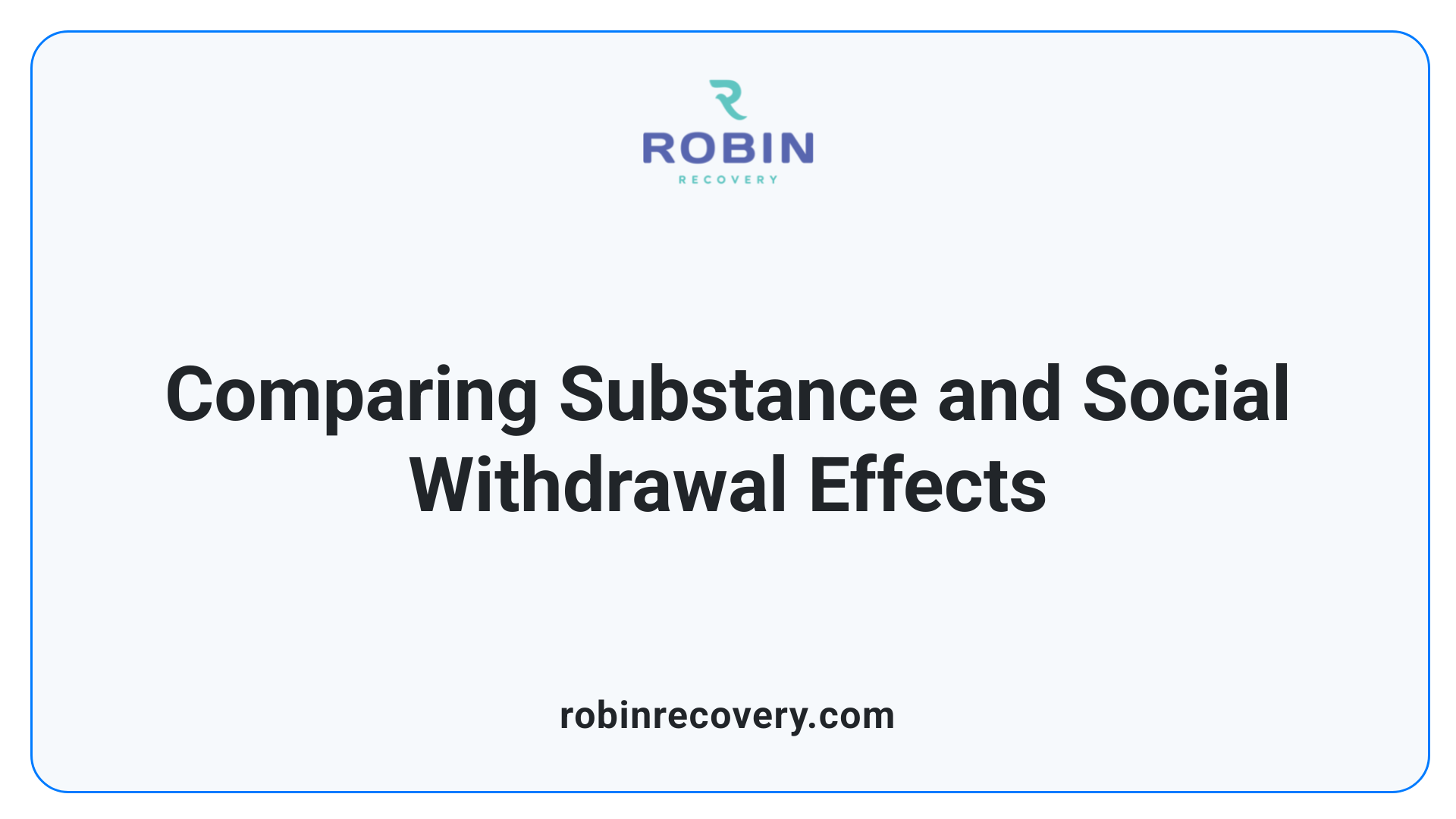
How does substance withdrawal differ from social withdrawal in terms of mental health impact?
Substance withdrawal and social withdrawal both carry significant mental health implications, but they manifest in distinct ways.
Substance withdrawal usually triggers severe psychological symptoms, such as anxiety and depression. It also includes intense cravings that can destabilize an individual’s mental state and coping abilities. Individuals may face physical symptoms, requiring medical supervision to ensure safe detoxification, as these symptoms can include nausea, seizures, or hallucinations, particularly evident in alcohol and opioid withdrawals.
In contrast, social withdrawal primarily results in feelings of loneliness and isolation. This condition is linked to various risks, such as an increased likelihood of cognitive decline, heart disease, and stroke. It has broad implications that can significantly impact physical health and overall well-being, particularly in vulnerable populations like the elderly.
Both forms of withdrawal highlight the need for social connections. While substance withdrawal deeply affects immediate mental health, social withdrawal poses long-term risks to holistic health, emphasizing that support systems are essential in recovery processes.
Conclusion: The Essential Role of Comprehensive Care
The intersection between withdrawal management and mental health underlines the necessity of comprehensive care strategies. As withdrawal poses both mental and physical challenges, support systems including medical supervision and integrated care plans are crucial to assist individuals in tackling the multifaceted nature of addiction recovery. By addressing both the withdrawal symptoms and underlying mental health conditions, recovery programs can foster better long-term outcomes, promoting resilience and holistic well-being in individuals navigating the path to sobriety.
References
- The Importance of Withdrawal Management - Clear Behavioral Health
- Mental Health and Detox: What is the Connection?
- 3 An Overview of Psychosocial and Biomedical Issues During ...
- The Connection Between Alcohol Detox and Mental Health
- Understanding Withdrawal Management: A Crucial Step Towards ...
- Inpatient Withdrawal Management | Medical Services in Boulder, CO
- Withdrawal Management - Jefferson Center for Mental Health
- Benefits of Withdrawal Management for Addiction in Chicago, IL
- What is Withdrawal Management? - Valley Health System
- Withdrawal Management (Detox) - SummitStone Health Partners
